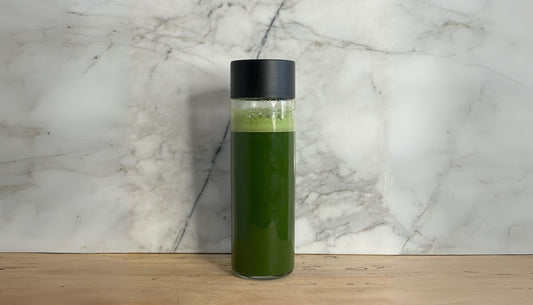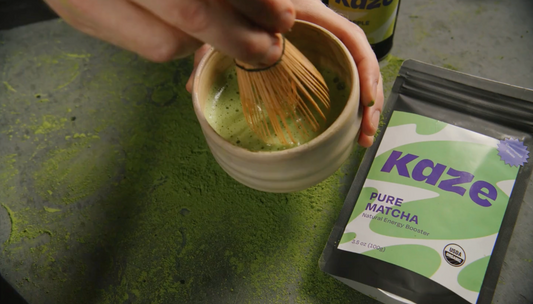EGCG is the most researched and potent catechin and is naturally found in matcha. Catechins are a type of antioxidant with epigallocatechin gallate (EGCG) being the most prominent. Antioxidants help reduce oxidative stress and inflammation in the body. For athletes, this can mean improved muscle recovery and reduced muscle damage after intense physical activity. Studies suggest that catechins may enhance endurance capacity and fat oxidation, which are crucial for athletes in endurance sports.
Epigallocatechin gallate (EGCG) is a prominent antioxidant found in green tea, known for its various health benefits. Some of the key effects of EGCG that are particularly relevant for athletic performance include:
Inflammation:
EGCG and other anti-oxidants have properties that are know to be beneficial in managing inflammation, which is especially relevant for athletes that need to recovery from strenuous workouts. Ʉ
Antioxidant Actions:
EGCG acts as a powerful antioxidant, which are know to help reduce inflammation and improve overall health. In some studies it has shown to help improve energy utilization and reduced experiences of fatigue. Ʉ
Muscle Maintenance:
In an animal study adding EGCg to the diet of these test subjects seemed to help maintain their muscle mass and reduce the breakdown of muscle that often comes with age. The researchers believe this might be because EGCg influences several pathways in the body related to muscle growth and breakdown. Ƚ
Men’s Health:
Research suggests that EGCG might support men's reproductive health.
Interactions with causes of Infections:
EGCG has shown to have potential antiviral, antifungal, and antibacterial properties, potentially useful against certain illnesses.
Stimulating Autophagy:
EGCG aids in autophagy, the body's process of cellular cleanup and removal of dysfunctional components, which can potentially contribute to reducing chronic inflammation.
Weight Loss Support:
EGCG may aid weight loss by increasing fat metabolism and enhancing overall metabolism, though further study is needed to prove this conclusivly.
Sources
Ƚ Meador BM, Mirza KA, Tian M, Skelding MB, Reaves LA, Edens NK, Tisdale MJ, Pereira SL. The Green Tea Polyphenol Epigallocatechin-3-Gallate (EGCg) Attenuates Skeletal Muscle Atrophy in a Rat Model of Sarcopenia. J Frailty Aging. 2015;4(4):209-15. doi: 10.14283/jfa.2015.58. PMID: 27031020.
Weiss DJ, Anderton CR. Determination of catechins in matcha green tea by micellar electrokinetic chromatography. J Chromatogr A. 2003 Sep 5;1011(1-2):173-80. doi: 10.1016/s0021-9673(03)01133-6. PMID: 14518774.
Pham-Huy LA, He H, Pham-Huy C. Free radicals, antioxidants in disease and health. Int J Biomed Sci. 2008 Jun;4(2):89-96. PMID: 23675073; PMCID: PMC3614697.
Ʉ Ohishi T, Goto S, Monira P, Isemura M, Nakamura Y. Anti-inflammatory Action of Green Tea. Antiinflamm Antiallergy Agents Med Chem. 2016;15(2):74-90. doi: 10.2174/1871523015666160915154443. PMID: 27634207.






